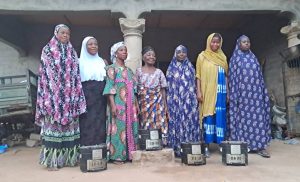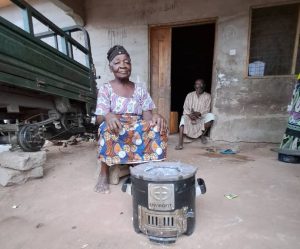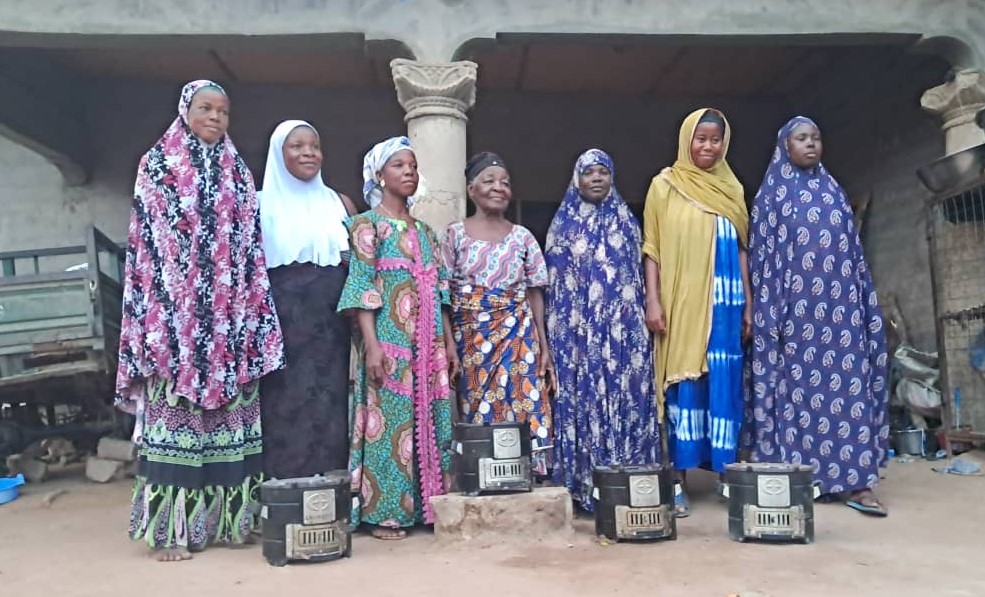
On Monday, July 7, 2025, Ghana and Switzerland made history with the issuance of Internationally Transferred Mitigation Outcomes (ITMOs) for the ‘Transformative Cookstove Activity in Rural Ghana’. The two countries achieved this under the Paris Agreement’s Article 6.2 framework.
On the evening of the following day, July 8, a ceremony was held at the residency of the Swiss Embassy in Accra. In attendance were diplomats, politicians, businessmen and women, technocrats and some guests, who, after listening to speeches, raised their glasses to toast Ghana and Switzerland, celebrating the successful issuance of 11,733 ITMOs.
After deducting Switzerland’s contribution to global emission reductions, the credits were transferred to the Climate Protection and CO₂ Compensation Foundation (Klik) account in the Swiss Emissions Trading Registry.
The KliK Foundation will use the ITMOs to meet its obligations under Switzerland’s CO₂ Act. Switzerland will also count them toward its Paris Agreement target (its Nationally Determined Contributions). To prevent double-counting, Ghana has agreed to deduct the transferred emission reductions from its own greenhouse gas inventory.
Under the Paris Agreement, Switzerland plans to achieve about one-third of its CO₂ reductions abroad — around 34 million tonnes by 2030. It is, because buying credits overseas is considered cheaper and more efficient.
But the Klik Foundation, which is responsible for carrying out this plan, admits progress is lagging badly: so far, only 13,649 tonnes of CO₂ savings have been certified, just 0.04 percent of the target, in two projects which include switching gas buses to electric in Thailand and providing efficient cooking stoves in Ghana. Critics, however, say the strategy is unrealistic and that Switzerland risks missing its 2030 climate goals.
The Environmental Protection Authority’s 2024 report indicates that Ghana has the potential to unlock a minimum of $9.3 billion by 2030 through carbon markets, while a report from the Carbon Market Office notes that Ghana’s carbon market could attract over $1 billion in investments by 2030. The total, it says, includes investments in projects as well as revenue from related fees.
Ghana is therefore currently developing its carbon market, hoping to attract the over $1 billion in investments by 2030 through various projects that reduce greenhouse gas emissions and promote sustainable practices.
The country is targeting an ambitious mitigation of 64 million tonnes of greenhouse gas emissions by 2030, committing to reduce emissions by 15 percent using domestic resources and an additional 30 percent with international support.
According to the World Bank, Ghana has earned $4.8 million for reducing nearly one million tons of carbon emissions caused by deforestation and forest degradation – with up to $45 million expected by the end of 2024.
In Kasei, a farming community in the Ejura-Sekyedumase Municipal District of the Ashanti region, the women are happy with their clean cookstoves – at least they now use less charcoal, they say, which also means spending less money on cooking fuel. And there is a hidden benefit: every time these women cooked okro soup, banku, or tuo zaafi on the efficient stove, they help Switzerland cut its carbon emissions.
The Ghana project has a target to distribute 180,000 efficient cooking stoves – designed either for wood or charcoal, aiming to save CO2 for Switzerland. But the people linked to the project in Ghana do not want to talk to journalists about it.
How many they have sold so far, is not publicly known. If the plan to sell 180,000 efficient stoves in Ghana was successful, it would save about three million tonnes of CO₂. Switzerland, in turn, would be able to count those savings in its emissions register, under the terms of the agreement the two countries signed.
Questions are ignored
Salla Seidu is a 31-year-old mother of three who lives in Kasei. She bought her efficient stove about a year and a half ago for GH¢180. Approximately 13 Swiss francs. She says she is especially happy that it produces less smoke and uses less charcoal, which is also better for her family’s health and the environment, and it also saves her money. She adds with excitement that the stove also cooks faster.
Investigating this carbon credit project in collaboration with the Swiss publication, Beobachter took us to Kasei. We wanted to see firsthand and speak to beneficiaries of this lofty project. But apart from the women in Kasei, no one else wanted to speak to us. Particularly, the Ghana partners.

We reached out first to Farmerline, one of the partners in the project. But they wouldn’t say a word. When we contacted an official, he promised to respond to our questions after we agreed to send them to him on the WhatsApp messaging app. After several weeks of waiting and not hearing from him, we sent reminders. He never answered our questions. Instead, he suggested that we speak to an official of Envirofit, manufacturers of the cookstoves.
The stoves are manufactured in Ghana by the US company Envirofit and distributed by Farmerline. When we learned that Farmerline was involved in an international CO2 project, we were surprised. Because we knew the company, but only as a Ghanaian tech start-up that had developed a mobile app to make it easier for farmers to access agricultural support. As a matter of fact, not much is known to the Ghanaian public about the clean cookstoves project and the CO2 deal with Switzerland. Publicity appears limited. Even some journalists actively covering climate change don’t seem to know about it.
Why the secrecy?
In a LinkedIn post, the regional director of Envirofit International located in Ghana had talked enthusiastically about the project. He proudly wrote on his profile: “Pioneering the world’s first ITMO cookstove project”. But when we reached out to him, spoke on the phone and agreed to email our questions to him after he had shared his email address with us, he went quiet. He ghosted us for several weeks – he did not respond to WhatsApp messages, emails or calls. Even when Beobachter also got in touch with them from Switzerland, the two companies did not respond.
While they boast about the project within their networks, they are silent in public. Why the secrecy, when the project is supposed to be a centerpiece?
It is not only the “pioneers” in Ghana who are tight-lipped. Even the company behind the project, ACT Commodities, is silent too. This international conglomerate designed the project for Switzerland and ultimately sells it the CO₂ certificates. Based in Amsterdam’s upscale financial district of Zuidas, ACT which markets itself as “Your Sustainability Solutions Partner,” also trades in marine fuels.
The company is one of the major players in the global carbon emissions trade; according to the Dutch investigative news organisation Follow the Money, it recorded €3.4 billion in revenue and more than €100 million in profit in 2023. Dutch journalist Hans Ariëns of The Investigative Desk has been following ACT and its role in the global CO₂ trading market closely.
“For a long time, ACT seemed to have a culture of mainly making a quick buck. A bit like The Wolf of Wall Street, with champagne corks popping and confetti flying after big business deals,” Ariëns says.
Switzerland lends credibility to the company’s reputation
A series of scandals over worthless CO₂ certificates in recent years; including one involving Zurich-based South Pole, the world’s largest climate certificate trader, have shaken confidence in the global emissions business.
According to Ariëns, ACT is now trying to rebuild its reputation, partly through the Ghana project overseen by the Swiss government. The company highlights this project on its website, stressing its cautious calculations. “An employee told me they value these projects because they offer certainty,” Ariëns said. “They’re even willing to accept lower profit margins for that.”
That may sound convincing, but the reality tells a different story behind the scenes.
According to a document obtained by Beobachter through the Freedom of Information Act, the Ghana project was temporarily suspended in the summer of 2023 after ACT attempted to pressure Swiss authorities into approving an excessively high fNRB value.
Overestimated fNRB value
Behind this technical abbreviation lies a key factor in Switzerland’s CO₂ deal with Ghana, and with other planned climate projects in countries like Georgia, Malawi, and Senegal.
fNRB stands for fraction of non-renewable biomass, and it measures the estimated share of firewood that is not harvested sustainably. The idea is simple: the higher the fNRB value, the greater the assumed climate benefit from reducing wood use, and the more CO₂ certificates that can be sold.
But here is the risk. If the fNRB value is inflated, the project would claim far more climate benefit than it actually delivers.
In Ghana, the climate impact was initially overestimated by up to 79 percent. The adjusted percentage only became public after climate policy expert Delia Berner, from the Swiss NGO Alliance Sud, obtained the calculations through the Freedom of Information Act. Berner severely criticised the lack of transparency: “The most important parameters must be made public so that the society can judge the quality of these projects,” she says.
After Alliance Sud’s findings were made public, the KliK Foundation was compelled to admit publicly. It acknowledged that instead of the 3.2 million tonnes of CO₂ savings it first projected, the figure now stands at just 1.3 million tonnes.
By law, Switzerland’s federal compensation office is required to ensure that projects comply with the country’s CO₂ law and bilateral agreements, and that climate benefits are not overstated. But because Switzerland is largely the only European country pursuing CO₂ offset projects abroad, there are no countries with sufficient experience it can draw on. Although the rules for implementing Article 6 of the Paris Agreement were adopted at the last climate conference in Baku, critics warn that they may contain loopholes that could be exploited.
Different views on fNRB
Because the fNRB value is both critical and hard to measure, it has become a major bone of contention. While the Swiss government’s compensation office insists on relying on scientific evidence, it faced strong external pressure; especially from ACT and its partner, the Klik Foundation. Internal documents seen by Beobachter confirm this strife.
On March 10, 2023, the Federal Office for the Environment (FOEN) and other agencies took a firm decision to set the fNRB value at 30 percent. According to minutes of an online meeting available to us, this percentage was arrived at as a cautious average meant to avoid overstating emission reductions that do not reflect efficient emission values and wrongly crediting certificates toward Switzerland’s Paris climate targets.
Earlier in February that year, Klik had tried, unsuccessfully, to block the move. Together with ACT, they pushed for a much higher value of nearly 80 percent. Klik warned that if the lower figure of 30 percent was maintained, nine other programmes would have to be re-assessed, and some might even be discontinued because they may no longer be financially viable. Klik insisted that the government should not be “overly conservative” or set the value “too low.”
In June, Klik’s Managing Director Marco Berg and the Board Chair doubled down, and wrote to FOEN’s leadership saying officials from Ghana, Malawi, and Senegal were baffled by Switzerland’s “unilateral decision”, taken without consulting its partner countries, and warned that the projects were now “seriously at risk.”
“This approach makes little sense — either for climate policy or for maintaining good relations between Switzerland and the African countries,” they argued.
Rising tensions
That reaction was not well received. In a June 30 protocol, FOEN Deputy Director, Reto Burkard responded bluntly. He said it was not in Klik’s place “to judge Switzerland’s position or its bilateral relations.”
FOEN stood firm, defending its scientific stance and issuing a detailed rebuttal to ACT and Klik’s arguments. FOEN has subsequently continued to uphold the 30 percent fNRB.
The intensity of the lobbying. The letters, private meetings, statements, even interventions at the Bonn Climate Change Conference; shows what is at stake. All this, seemingly over a few stoves in Ghana. But the scale of the efforts suggests that Switzerland feared any possible serious dent to its reputation if its much-publicized pioneering strategy were to fail.
Asked about these alleged pressure tactics, an ACT spokesperson dismissed the claim and said: “Your interpretation and insinuations are factually incorrect.” Klik, however, privately told FOEN that its requirements were “too demanding” and that fixing the fNRB uniformly at 30 percent was unjustified.
Yet in public, Klik struck a soothing tone. In a statement to Beobachter, it’s Director, Marco Berg praised FOEN’s standards as unmatched globally and said the effort to guarantee high-quality carbon credits was part of a “shared learning process.”
Far from the policy and financial battles in Europe, daily life in Ghana looks different. The women are cooking rice, vegetable stews, and tuo zaafi with ayoyo soup on the new efficient stoves. But the stoves are too small for large portions of food, and so the families still rely on open fires and fuelwood when preparing bigger meals.
By Emmanuel K Dogbevi, Tina Berg & Hans Ariëns
This investigation is a collaboration between Ghana Business News and Swiss publication Beobachter.


